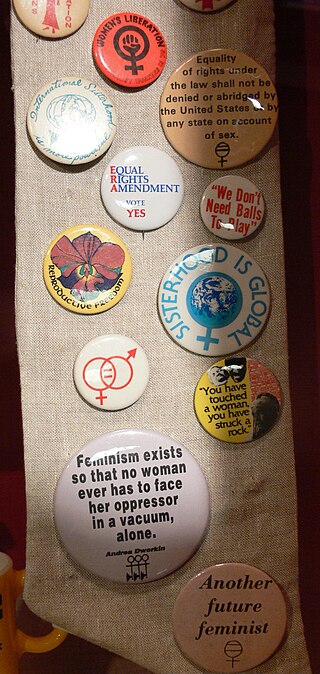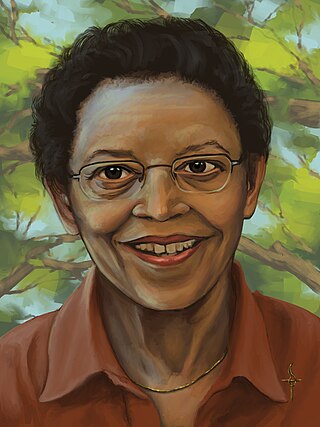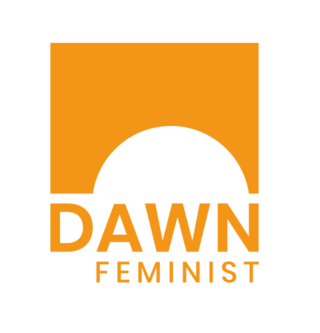Feminism is a range of socio-political movements and ideologies that aim to define and establish the political, economic, personal, and social equality of the sexes. Feminism holds the position that modern societies are patriarchal—they prioritize the male point of view—and that women are treated unjustly in these societies. Efforts to change this include fighting against gender stereotypes and improving educational, professional, and interpersonal opportunities and outcomes for women.

Feminist economics is the critical study of economics and economies, with a focus on gender-aware and inclusive economic inquiry and policy analysis. Feminist economic researchers include academics, activists, policy theorists, and practitioners. Much feminist economic research focuses on topics that have been neglected in the field, such as care work, intimate partner violence, or on economic theories which could be improved through better incorporation of gendered effects and interactions, such as between paid and unpaid sectors of economies. Other feminist scholars have engaged in new forms of data collection and measurement such as the Gender Empowerment Measure (GEM), and more gender-aware theories such as the capabilities approach. Feminist economics is oriented towards the goal of "enhancing the well-being of children, women, and men in local, national, and transnational communities."
Feminist theory is the extension of feminism into theoretical, fictional, or philosophical discourse. It aims to understand the nature of gender inequality. It examines women's and men's social roles, experiences, interests, chores, and feminist politics in a variety of fields, such as anthropology and sociology, communication, media studies, psychoanalysis, political theory, home economics, literature, education, and philosophy.
Marxist feminism is a philosophical variant of feminism that incorporates and extends Marxist theory. Marxist feminism analyzes the ways in which women are exploited through capitalism and the individual ownership of private property. According to Marxist feminists, women's liberation can only be achieved by dismantling the capitalist systems in which they contend much of women's labor is uncompensated. Marxist feminists extend traditional Marxist analysis by applying it to unpaid domestic labor and sex relations.
Transnational feminism refers to both a contemporary feminist paradigm and the corresponding activist movement. Both the theories and activist practices are concerned with how globalization and capitalism affect people across nations, races, genders, classes, and sexualities. This movement asks to critique the ideologies of traditional white, classist, western models of feminist practices from an intersectional approach and how these connect with labor, theoretical applications, and analytical practice on a geopolitical scale.
Gender mainstreaming is the public policy concept of assessing the implications for people of different genders of a planned policy action, including legislation and programmes.
Feminist political ecology is a feminist perspective on political ecology, drawing on theories from Marxism, post-structuralism, feminist geography, ecofeminism and cultural ecology. Feminist political ecology examines the place of intersectional social relations in the political ecological landscape, exploring them as a factor in ecological and political relations. Specific areas in which feminist political ecology is focused are development, landscape, resource use, agrarian reconstruction and rural-urban transformation. Feminist political ecologists suggest gender is a crucial variable – in relation to class, race and other relevant dimensions of political ecological life – in constituting access to, control over, and knowledge of natural resources.

Mihaela Miroiu is a Romanian political theorist and feminist philosopher, the most prominent activist for women's rights and a very well known activist for Roma rights and, more generally, for the rights of minorities. She is currently a professor of Political science at the Faculty of Political Science, National University of Political Studies and Public Administration, Bucharest.
In the early 1960s, an interest in women and their connection with the environment was sparked largely by Ester Boserup's book Woman's Role in Economic Development. Starting in the 1980s, policy makers and governments became more mindful of the connection between the environment and gender issues. Changes regarding natural resource and environmental management were made with the specific role of women in mind. According to the World Bank in 1991, "Women play an essential role in the management of natural resources, including soil, water, forests and energy...and often have a profound traditional and contemporary knowledge of the natural world around them". Whereas women were previously neglected or ignored, there was increasing attention to the impact of women on the natural environment and, in return, the effects the environment has on the health and well-being of women. The gender-environment relations have ramifications in regard to the understanding of nature between men and women, the management and distribution of resources and responsibilities, and the day-to-day life and well-being of people.
Valentine Moghadam is a feminist scholar, sociologist, activist, and author whose work focuses on women in development, globalization, feminist networks, and female employment in the Middle East.
Amrita Basu is an American academic and political scientist. She currently is a professor at Amherst College where she holds affiliations in the departments of Political Science, Sexuality, Women's, & Gender Studies, Asian Languages & Civilizations, and Black Studies.
Degrowth is an academic and social movement critical of the hegemony of economic growth perpetuated by capitalism, and calls for an equitable and democratically-led downscaling of production and consumption in industrialised countries as a means to achieve environmental sustainability, social justice and well-being. Degrowth theory is based on ideas and research from a multitude of disciplines such as economics, economic anthropology, ecological economics, environmental sciences, and development studies. It argues that the unitary focus of modern capitalism on growth, in terms of the monetary value of aggregate goods and services, causes widespread ecological damage and is not necessary for the further increase of human living standards. Degrowth theory has been met with both academic acclaim and considerable criticism.

A variety of movements of feminist ideology have developed over the years. They vary in goals, strategies, and affiliations. They often overlap, and some feminists identify themselves with several branches of feminist thought.

The Association for Women's Rights in Development (AWID), formerly the Association for Women in Development, is an international feminist membership and movement support organization committed to achieving gender equality, sustainable development and women's human rights. It was established in 1982 as a U.S.-based association focused on promoting dialogue on women in development issues among academics, policy makers and development professionals. AWID stands for a progressive intersectional feminism, and works to defend the international and regional human rights systems. The co-executive directors are Hakima Abbas and Cindy Clark.

Ecofeminism is a branch of feminism and political ecology. Ecofeminist thinkers draw on the concept of gender to analyse the relationships between humans and the natural world. The term was coined by the French writer Françoise d'Eaubonne in her book Le Féminisme ou la Mort (1974). Ecofeminist theory asserts a feminist perspective of Green politics that calls for an egalitarian, collaborative society in which there is no one dominant group. Today, there are several branches of ecofeminism, with varying approaches and analyses, including liberal ecofeminism, spiritual/cultural ecofeminism, and social/socialist ecofeminism. Interpretations of ecofeminism and how it might be applied to social thought include ecofeminist art, social justice and political philosophy, religion, contemporary feminism, and poetry.

Lise Vogel is a feminist sociologist and art historian from the United States. An influential Marxist-feminist theoretician, she is recognised for being one of the main founders of the Social Reproduction Theory. She also participated in the civil rights and the women's liberation movements in organisations such as the Student Nonviolent Coordinating Committee (SNCC) in Mississippi and Bread & Roses in Boston. In her earlier career as an art historian, she was one of the first to try to develop a feminist perspective on Art History.

Virginia "Gina" Vargas Valente is a Peruvian sociologist and a well-known figure in the women's movement in her country.

Peggy Antrobus is a feminist activist, author, and scholar from the Caribbean. She served as Advisor on Women's Affairs to the government of Jamaica, and as United Nations advisor to the Barbados Ministry of Social Transformation. She is a founder member of several feminist organisations, including the Caribbean Association for Feminist Research and Action (CAFRA), the global South feminist network Development Alternatives with Women for a New Era (DAWN), and the International Gender and Trade Network (IGTN). She is the author of The Global Women's Movement: Origins, Issues and Strategies.
Feminism in Pakistan refers to the set of movements which aim to define, establish, and defend the rights of women in Pakistan.This may involve the pursuit of equal political, economic, and social rights, alongside equal opportunity. These movements have historically been shaped in response to national and global reconfiguration of power, including colonialism, nationalism, Islamization, dictatorship, democracy, and the War on Terror. The relationship between the women's movement and the Pakistani state has undergone significant shifts from mutual accommodation to confrontation and conflict.

Development Alternatives with Women for a New Era (DAWN) is a transnational feminist network of scholars, researchers and activists from the global South. DAWN works under the gender, ecology and economic justice (GEEJ) framework, which highlights the linkages between these three advocacy areas. The network offers a forum for feminist advocacy, research, and analysis on global social, political, and economic issues affecting women, with a focus on poor and marginalized women of the global South. This was a shift from the association of feminism with white, middle-class women of the global North common at the time of DAWN’s formation and into the present-day. Rafia Zakaria, author of Against White Feminism: Notes on Disruption, argues that DAWN and its empowerment approach to development offer a successful example of a bottom-up, antiracist alternative to political mobilization that decentres the whiteness prominent in dominant feminist development projects.








